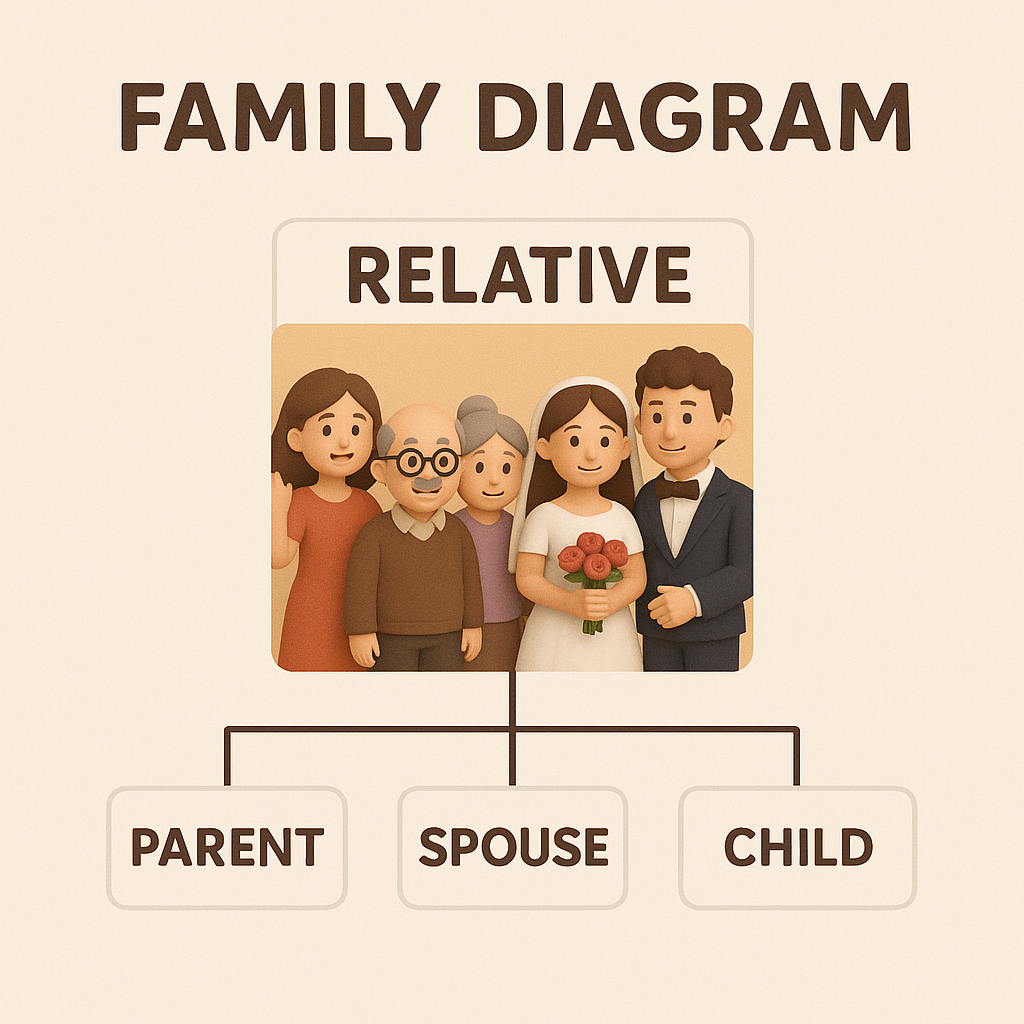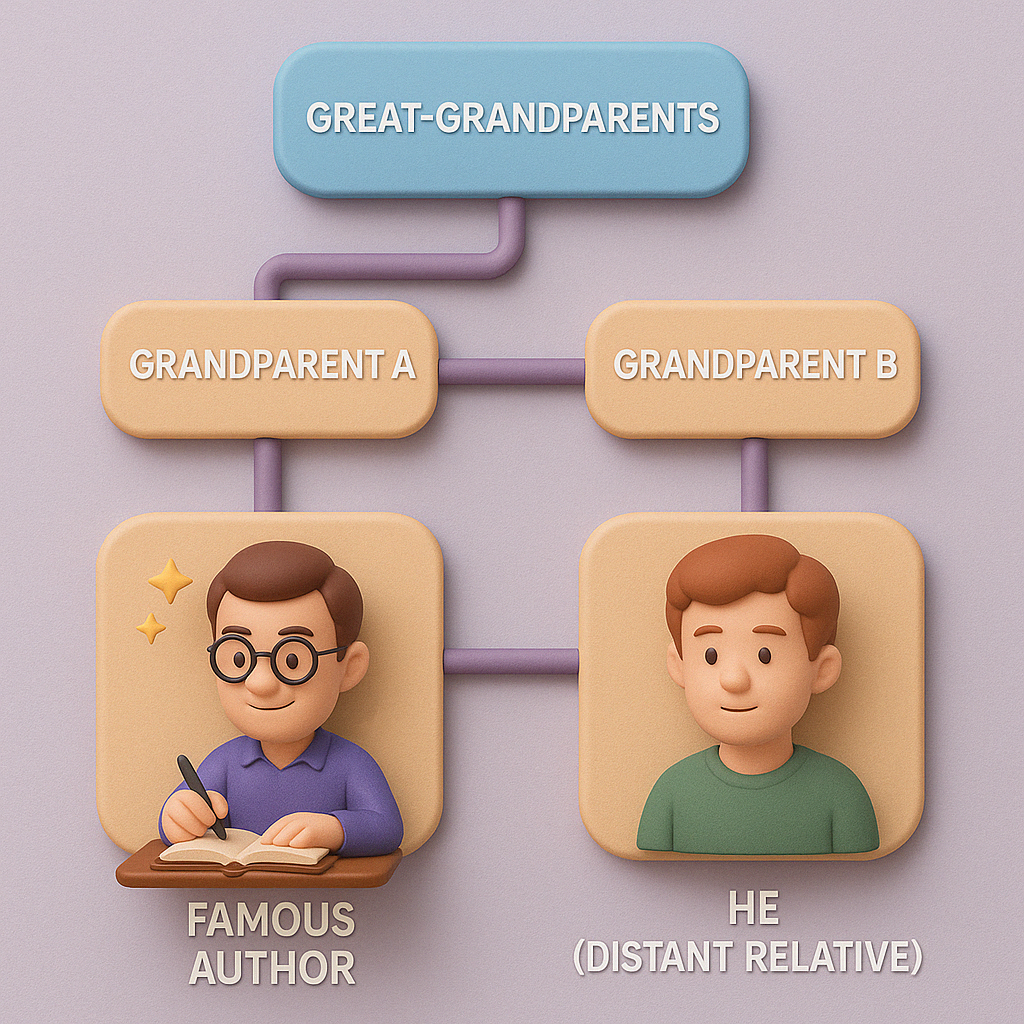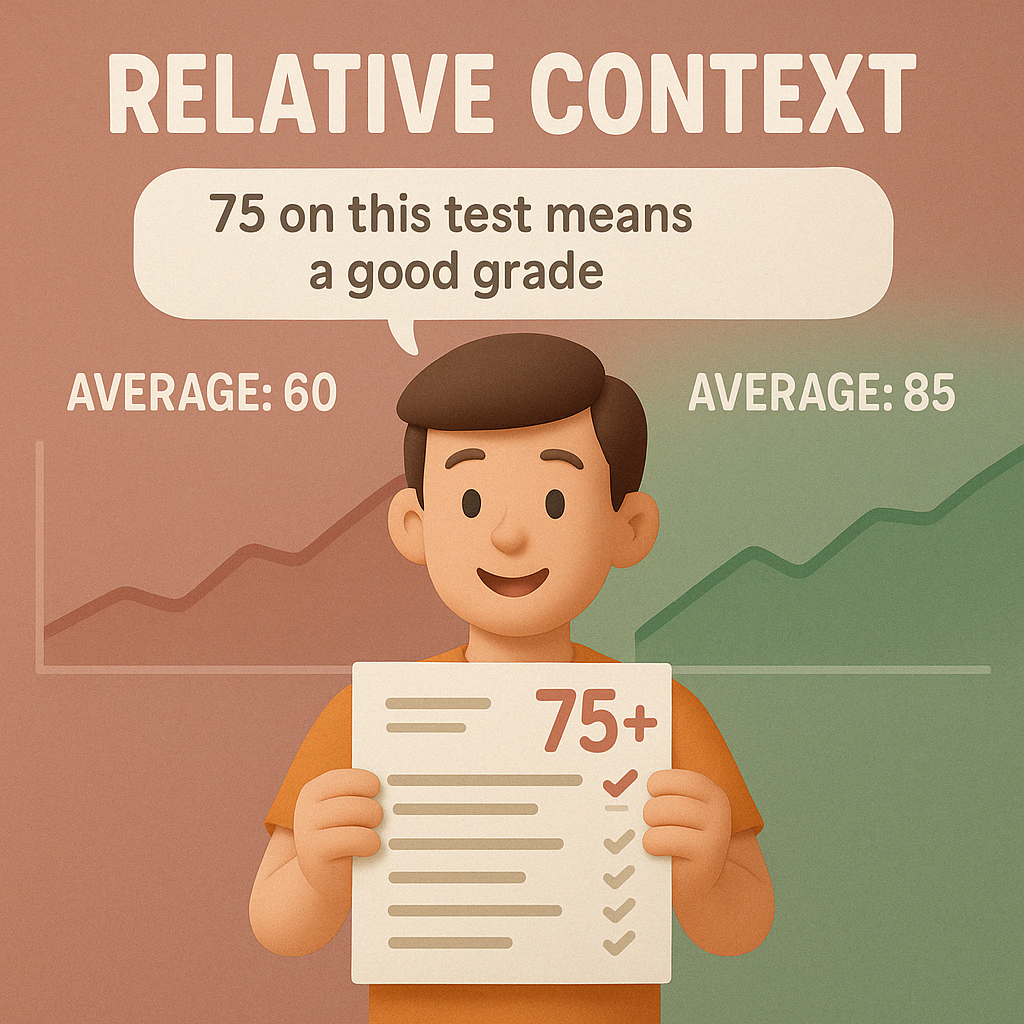Relative
Definition
Relative is a noun and an adjective. As a noun, it refers to a person connected by blood or marriage. As an adjective, it describes something in relation to something else or as dependent on a specific context or standard.
Parts of Speech
- Noun
- Adjective
Pronunciation
American English
- IPA Pronunciation: /ˈrɛl.ə.tɪv/
- Respelling: REL-uh-tiv
British English
- IPA Pronunciation: /ˈrɛl.ə.tɪv/
- Respelling: REL-uh-tiv
Etymology
The word "relative" originates from the Latin "relativus," meaning "having relation to something," derived from "referre" (to bring back, relate). It entered Middle English in the late 14th century.
Derivatives
- Relativity (noun)
- Relatively (adverb)
- Relational (adjective)
- Relation (noun)
- Relativism (noun)
Synonyms
- Kin (noun)
- Proportional (adjective)
- Comparable (adjective)
Antonyms
- Stranger (noun)
- Absolute (adjective)
- Independent (adjective)
Usage
The term "relative" is commonly used in family contexts as well as in discussions of comparisons or dependencies. Examples include "She visited her relatives during the holidays" (noun) and "Success is relative to one's goals" (adjective).
Related Terms
- Relation: A connection or association.
- Kinship: The state of being related by blood or marriage.
- Comparison: The act of evaluating similarities or differences.
Detailed Definitions
Noun
- A person connected by blood or marriage: Refers to family members.
- Example: "She invited her relatives to the wedding."
- Someone considered in relation to another: Refers to an individual whose status is compared to others.
- Example: "He is a distant relative of the famous author."
Adjective
- Dependent on or in relation to something else: Refers to something defined by comparison or context.
- Example: "We need to consider the problem in its relative context."
- Proportional or comparable: Refers to something that is related in degree or measure.
- Example: "Her success is relative to the effort she puts in."
relative



🇨🇳 Mandarin Chinese
- 亲戚 (relative as in family member)
IPA: /t͡ɕʰin˧˥ t͡ɕʰi˧˥/
English Respelling: qīnqī
- 相对的 (relative as in comparative)
IPA: /ɕjɑŋ˧˥ dʊi˥˥ tə/
English Respelling: xiāngduì de
🇮🇳 Hindi
- रिश्तेदार (relative as in family member)
IPA: /ɾɪʂt̪edaːr/
English Respelling: riśtedār
- सापेक्ष (relative as in comparative)
IPA: /saːpekʂ/
English Respelling: sāpekṣ
🇪🇸 Spanish
- Pariente (relative as in family member)
IPA: /paˈɾjente/
English Respelling: pariente
- Relativo (relative as in comparative)
IPA: /reˈlatiβo/
English Respelling: relativo
🇫🇷 French
- Parent (relative as in family member)
IPA: /paʁɑ̃/
English Respelling: parent
- Relatif (relative as in comparative)
IPA: /ʁelatif/
English Respelling: relatif
🇸🇦 Modern Standard Arabic
- قريب (relative as in family member)
IPA: /qɑːrib/
English Respelling: qarib
- نسبي (relative as in comparative)
IPA: /nisbiː/
English Respelling: nisbi
🇧🇩 Bengali
- আত্মীয় (relative as in family member)
IPA: /at̪mij/
English Respelling: atmīẏ
- আপেক্ষিক (relative as in comparative)
IPA: /apekʂik/
English Respelling: āpekṣik
🇷🇺 Russian
- Родственник (relative as in family member)
IPA: /rədˈstvʲenʲnʲɪk/
English Respelling: rodtsvennik
- Относительный (relative as in comparative)
IPA: /ɐtnɐˈsʲitʲɪvnɨj/
English Respelling: otnositel'ny
🇵🇹 Portuguese
- Parente (relative as in family member)
IPA: /pɐˈɾẽt(ɨ)/
English Respelling: parente
- Relativo (relative as in comparative)
IPA: /ʁɨˈlativu/
English Respelling: relativo
🇮🇩 Indonesian
- Kerabat (relative as in family member)
IPA: /kəˈrabat/
English Respelling: kerabat
- Relatif (relative as in comparative)
IPA: /rəˈlatif/
English Respelling: relatif
🇩🇪 German
- Verwandter (relative as in family member)
IPA: /fɛɐ̯ˈvantɐ/
English Respelling: verwandter
- Relativ (relative as in comparative)
IPA: /ʁeˈlaːtɪf/
English Respelling: relativ
🇯🇵 Japanese
- 親戚 (relative as in family member)
IPA: /ɕiɴseːki/
English Respelling: shinseki
- 相対的な (relative as in comparative)
IPA: /soːtaitɛkina/
English Respelling: sōtaitekina
🇻🇳 Vietnamese
- Họ hàng (relative as in family member)
IPA: /haː˧˥ haːŋ˧˥/
English Respelling: họ hàng
- Tương đối (relative as in comparative)
IPA: /twəːwŋ˧ˀ˥ dɔːj˧˥/
English Respelling: tương đối
🇰🇷 Korean
- 친척 (relative as in family member)
IPA: /tɕʰint͈ʌk̚/
English Respelling: chincheok
- 상대적인 (relative as in comparative)
IPA: /saŋdɛd͈ʑʌgin/
English Respelling: sangdaejeog-in
🇹🇷 Turkish
- Akraba (relative as in family member)
IPA: /akraba/
English Respelling: akraba
- Göreceli (relative as in comparative)
IPA: /ɟøɾed͡ʒeli/
English Respelling: göreceli
🇵🇰 Urdu
- رشتہ دار (relative as in family member)
IPA: /ɾɪʂt̪ədaːr/
English Respelling: rishtedar
- مطلق (relative as in comparative)
IPA: /mʊtlɪk/
English Respelling: mutaliq





